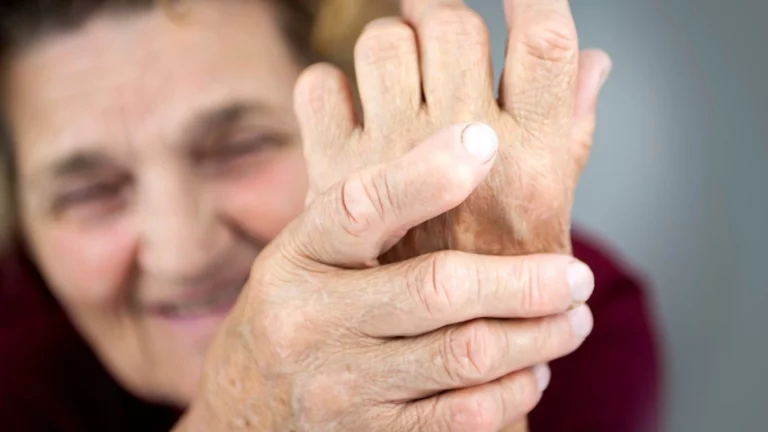How Cold Showers Affect Asthma: What You Need to Know
Cold showers are an interesting topic, especially when you’re thinking about how they might affect conditions like asthma. If you’re an asthma sufferer, you’ve probably heard both the good and bad about cold water and how it could impact your lungs. Let’s dive into how cold showers could potentially affect asthma and whether it’s something you should be cautious about.
Taking a cold shower isn’t like jumping into a warm bath. Cold water can shock your body, causing your blood vessels to constrict and making you feel like your skin is tightening up. It’s why you might feel that rush of energy or get goosebumps! But if you have asthma, you may experience some reactions in your airways, too.
Cold water can trigger your body’s natural fight-or-flight response, which could cause your airways to tighten up, leading to increased asthma symptoms. Some asthma patients have found that cold air or cold water makes it harder for them to breathe. It’s something called “exercise-induced bronchoconstriction” (EIB), but it doesn’t just happen with exercise—it can happen in cold environments too. If your airways constrict, it can lead to shortness of breath, wheezing, and coughing.

Is a Cold Shower Really That Bad for Asthma?
The impact of cold showers on asthma varies from person to person. For some, a cold shower can feel invigorating and may even help with inflammation, while for others, it could be a trigger for an asthma attack. The main reason cold showers might make asthma symptoms worse is due to the sudden shock to your system. Cold water causes the blood vessels to constrict and can cause a tightening of your chest muscles, which might feel similar to an asthma attack.

But here’s the catch: for people with asthma, the cold doesn’t have to be the enemy! Some asthma sufferers have actually found cold exposure to help in small doses. In certain situations, like when you have inflammation in the lungs, cold water might temporarily reduce the swelling, offering relief. However, this is a personal experience and might not be true for everyone.
What Science Says About Cold Water and Asthma
The connection between cold water exposure and asthma isn’t straightforward, and studies show mixed results. Some research suggests that sudden exposure to cold can trigger asthma symptoms, while other studies indicate cold therapy can be beneficial in reducing inflammation.
Here’s what we know:
- Cold air and exercise-induced bronchoconstriction (EIB): If you have asthma, cold air can trigger EIB, which can cause your airways to narrow and make breathing difficult. This is particularly true when exercising outdoors in the cold, but it could also apply to cold showers.
- Cold showers and inflammation: Cold water therapy, also known as cryotherapy, is a treatment some athletes use to reduce inflammation. The theory is that by cooling down tissues, the body reduces swelling. While this could help some asthmatic conditions, it’s not clear if it has a significant impact on chronic asthma symptoms.
- Cold showers and adaptation: Some people who regularly take cold showers or participate in cold water immersion (like ice baths) have reported developing a tolerance to the cold. Over time, they might experience fewer negative effects. But again, this varies widely depending on the individual.
Should You Avoid Cold Showers if You Have Asthma?
If you’re someone who gets triggered by cold air or water, it might be a good idea to avoid cold showers, especially if you notice your asthma symptoms worsen afterward. Listen to your body! If your chest tightens or you start wheezing, it’s a sign that cold exposure isn’t right for you.

On the flip side, some people with asthma have been able to enjoy cold showers without problems. If you’re curious, you could try experimenting in a controlled way. Start with lukewarm water and gradually turn the temperature down as you see how your body responds. If it feels uncomfortable, stop and warm up again.
Can Cold Showers Be Used to Treat Asthma Symptoms?
Some folks use cold water as a way to “shock” the body and possibly reduce inflammation, but this is more of a personal remedy and isn’t widely recommended without medical supervision. If you have chronic asthma, the best route is still to rely on your prescribed asthma medications and follow your doctor’s advice. You should also have your inhaler ready, just in case you feel any tightness in your chest.
Tips for Managing Asthma and Cold Exposure:
- Use a warm-up strategy: If you do decide to take a cold shower, try warming up beforehand. A warm shower or a bit of light stretching before jumping into the cold water can help your body ease into the change in temperature.
- Consider your asthma triggers: If cold weather, air, or water has been a known trigger for your asthma attacks, it might be worth skipping the cold showers altogether.
- Breathing exercises: If you’re sensitive to the cold and worried about your breathing, practicing some calming breathing techniques can help relax your body and ease the tightness in your chest.
- Consult your doctor: If you’re considering cold showers as part of your asthma management, chat with your healthcare provider first. They can help you determine whether it’s safe for you based on your specific symptoms and triggers.
Conclusion
In short, cold showers can affect asthma in different ways. For some, they might worsen symptoms, while for others, they could provide temporary relief from inflammation. If you have asthma, it’s important to pay attention to how your body reacts and take precautions as needed. Always prioritize your asthma medication and consult your doctor if you’re unsure about trying cold exposure.
Appendices
5 FAQs About Cold Showers and Asthma:
- Can cold showers trigger an asthma attack? Yes, cold showers can sometimes trigger asthma symptoms like wheezing or shortness of breath, especially for those sensitive to cold air or water.
- Are cold showers good for asthma inflammation? Some people find that cold exposure reduces inflammation temporarily, but this isn’t universally effective for all asthma sufferers.
- What temperature should I use for a shower if I have asthma? If you’re prone to asthma symptoms from cold exposure, it’s safer to use lukewarm water and avoid very cold showers.
- How can I reduce the risk of asthma symptoms during a cold shower? Starting with a warm shower to gradually adjust your body temperature and stopping if discomfort arises are good strategies to reduce symptoms.
- Can cold showers help with asthma in the long term? There is no solid evidence suggesting that cold showers have long-term benefits for asthma. Always consult a doctor for asthma management strategies.
References:
- American Lung Association. (2024). Asthma and Environmental Triggers. Read More
- Mayo Clinic. (2023). Cold Weather and Asthma: How to Stay Safe. Read More
- National Institute of Health. (2022). Asthma: Understanding and Managing Symptoms. Read More
Disclaimer:
Disclaimer: The information provided in this article is for educational purposes only and should not replace medical advice. Always consult your healthcare provider for personalized asthma management and before making any changes to your routine.

Bianca Nala is a compassionate Nurse Practitioner with a strong background in primary and respiratory care. As a health writer for Healthusias.com, she combines her clinical expertise with a talent for clear, relatable storytelling to help readers better understand their health. Bianca focuses on topics like asthma, COPD, chronic cough, and overall lung health, aiming to simplify complex medical topics without losing accuracy. Whether she’s treating patients or writing articles, Bianca is driven by a single goal: making quality healthcare knowledge accessible to everyone.







